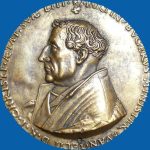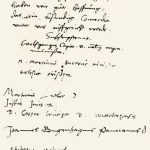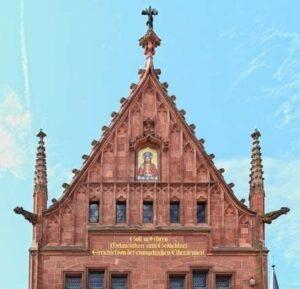A former adversary who became a friend
Luther’s writings had made a deep impression on Martin Bucer, a reformer from Strasbourg (1491-1551). From the mid 1520’s onwards, he sided with the Swiss theologians in the debate over the Lord’s Supper : whereas Luther believed in the real presence of Christ in the Eucharist, Huldrych Zwingli (Zurich) and Johannes Œcolampadius (Basel), believed that the words of the institution of the Lord’s saupper were purely symbolical (« This is my body.. » in fact meant « This is a symbol of my body »).
Melanchthon’s opinions differed from the theologians in Strasbourg and in Switzerland ; he even disagreed with them outright. But in 1530 his ideas began to change, bringing him closer to Bucer : in his « Apologie de la Confession d’Augsbourg »,Melanchthon’s attitude towards the Lord’s Supper was no longer the same : he thought that Christ was present alongside the bread and the wine, but not actually in them physically ; due to this change of interpretation, Bucer encouraged the towns of Southern Germany to come out in support of the « Confession d’Augsbourg ».In 1535, Bucer and Melanchthon were invited to come to Paris to speak about these new protestant ideas. They had now become friends and they both decided that it was not wise to shock traditional believers such as in France by new and revolutionary attitudes : if, little by little, the reformers were allowed to preach according to their own deep convictions, true faith would triumph in the end.
At the beginning of the1540’s,it was mainly Bucer and Melanchthon who led the dialogues with the catholics over matters of religion and politics. These protestant reformers were known for their moderation and desire for a peaceful outcome to the problem of religious division.
After Charles V’s victory over the German protestants in 1547, Melanchthon and Bucer went their separate ways : Bucer did not want Strasbourg to submit to the Emperor, so he had to emigrate to England .As for Melanchthon, he tried to lessen the impact of the religious stipulations imposed on the protestants in Saxony ; indeed, he continued to teach at the University of Wittenberg as before.





